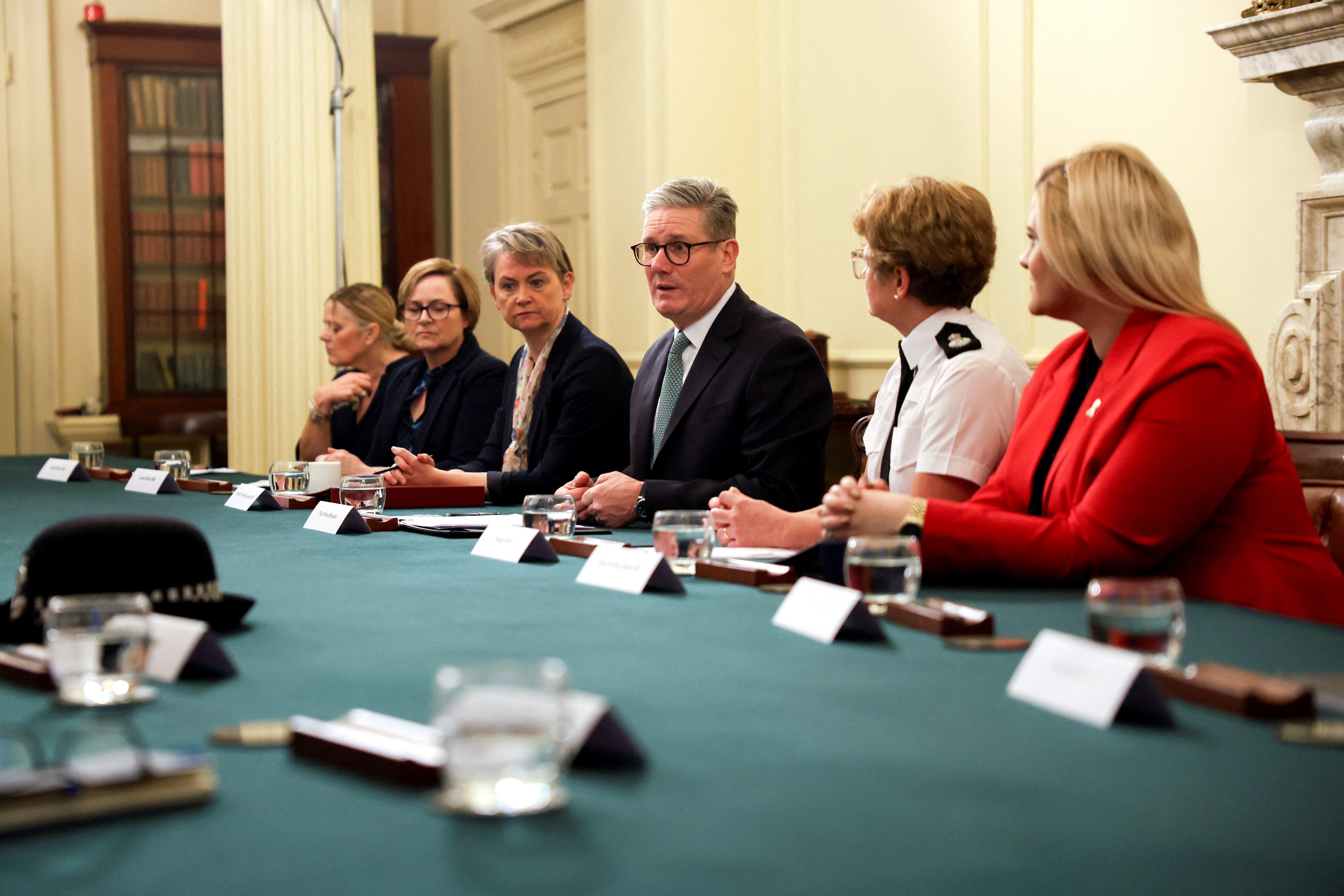New spiking offence aims to bring law up to date, minister says
Labour plans to make spiking a specific offence.

Making spiking a specific offence is about making sure the law is up to date to deal with it as a crime, justice minister Alex Davies-Jones has said.
Labour plans to make spiking a specific offence and has laid out plans for venue staff to be trained in relation to spiking, with a pilot to begin within weeks before a wider rollout next year.
Ms Davies-Jones, asked about why it was worthwhile to make spiking a new offence when it is already illegal, said: “Spiking is a crime already.
“A lot of people don’t realise that it is a crime already, which is part of the problem.”
She said there were around 6,000 reports of spiking last year but that because it is an underreported crime, it is not clear how big of a problem it is.
“Part of the problem we’ve got is around the data collection, so you don’t know if you’ve been spiked with a drink, a needle, a vape, for example,” she told Politics Hub on Sky News.
Modernising the offence and giving police the tools to get accurate data allows a clearer picture of where, how and how often spiking is happening, she said.
It is about “clarifying it, modernising it, making sure that people know exactly what this is…the law isn’t quite, it isn’t up to date.
“It isn’t modern enough.”
Sir Keir Starmer earlier said he hopes the change will give people “the confidence to come forward”, in a meeting of police bosses, transport figures and hospitality executives in Downing Street.
Ms Davies-Jones and Home Secretary Yvette Cooper were among the attendees at the round-table discussion on Monday morning.
Labour pledged in its manifesto to introduce a new offence for spiking, but there was no detail in the King’s Speech this year about a specific crime, though it promised to ensure an improved police response to cases.
According to information published by the Metropolitan Police, spiking offences are currently covered by more than one law, but most come under the Offences Against the Person Act 1861.
Sir Keir told the meeting: “There are a number of measures that we are setting out this morning – we want to talk it through with you.
“The first is to make spiking a specific offence so that it counts, it’s reported.”
He said that such a measure would mean that it “enables everybody to have the confidence to come forward” and also “it allows perpetrators to know that it’s a specific offence”.
Detailing the training scheme, he went on: “We’re beginning the piloting of training for staff in venues.”
He said the scheme would be “partly to spot what’s happening, but also to know what to do in the event that there is an incident in a venue”.
“That will start in December with a pilot then it will be rolled out from March of next year,” Sir Keir added.
He also said that the “final” point of discussion for the morning was “police indexing – (the) way that we count it across different police forces”.
Sir Keir added: “At the moment it’s quite hard to get your arms around the pure numbers.”
Plain clothes officers are being deployed in areas around bars and clubs to spot predatory behaviour.
The text-to-report number, 61016, that allows women to contact British Transport Police to report harassment on the train, is due to be relaunched.
Home Secretary Yvette Cooper said: “Spiking is a disturbing and serious crime which can have a damaging and long-lasting impact on victims.
“That’s why today we are taking decisive action to prevent this devastating crime and to crack down on perpetrators, by introducing a new criminal offence for spiking and launching specialist training for thousands of bar staff nationwide.
“People shouldn’t have to worry about the safety of their drinks on a night out.
“These changes are about giving victims greater confidence to come forward, and ensuring that there is a robust response from the police whenever these appalling crimes take place.”